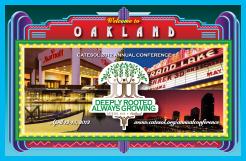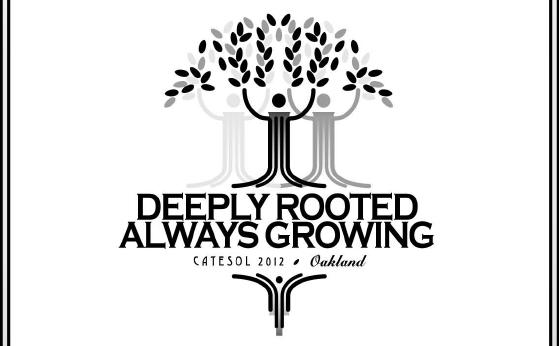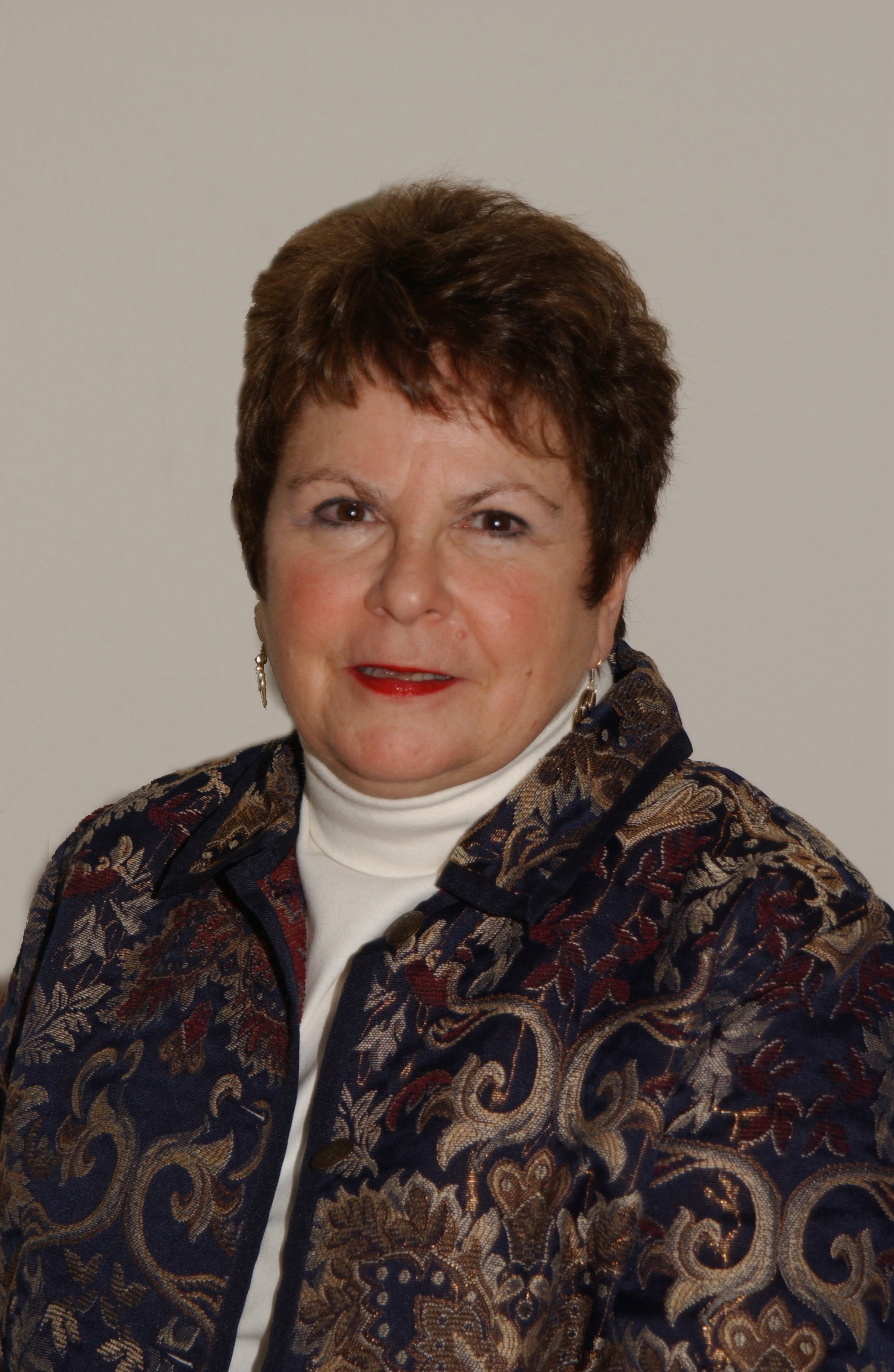
Mid
Winter 2012
CATESOL2012
Preview with
Judith
O'Loughlin
Ranomafana
Project
by
H.G. Scott
Free Spirits
by
Robb
Scott, Ed.D.
Efficacy
by Robb
Scott, Ed.D.
![]()
/Index/
/Letters/
/Profiles/
/Search/
/Podcasts/
![]()
Subscribe
for free!

California Dreamin'
Sequoias of Language Research to Present at CATESOL 2012

Judith B. O'Loughlin is a certified W.I.D.A. Standards and Assessment Consultant; Consultant at Pearson Longman; Consultant and Author at Oxford University Press; Owner at Language Matters Education Consultants, LLC; and Consultant and Teacher Trainer at the Center for Applied Linguistics.
Judith O'Loughlin was gracious to devote precious time to answering questions about CATESOL 2012 in the following ESL MiniConference interview.
1. What is CATESOL? How many members do you have?
CATESOL is an organization that represents teachers of English to speakers of other languages throughout California and Nevada. The goals of the organization are to:
CATESOL holds one annual and three regional conferences years (Northern, Los Angeles, and San Diego) and numerous chapter workshops throughout the state. Outreach and service to members is a key goal of the organization.
Current membership is 1,900, as of December 1, 2011.
2. What are some of the major recent projects or initiatives
that CATESOL has sponsored or spearheaded?
This year CATESOL will, for the first time, have three institutes at its annual conference. Each institute will focus on a current “hot topic” for the field. The K12 Institute focuses on Long Term English Language Learners: Prevention and Effective Approaches. The adult and community college Institute focuses on Transitions to Post-Secondary Education, Career Training and Work. The final Institute, for all participants, focuses on 21st Century Technology in the ESL Classroom.
3. What are the special challenges facing ESL professionals
in California?
The challenges are in many cases the same as those facing every state in the U.S. funding for programs at all levels, from K-12 through adult education, community college and higher education. Program cuts and services face every state in the nation. The CATESOL website has a link to advocacy updates, posted regularly by the advocacy team of Jeff Frost, CATESOL Legislative Advocate; Bette Empol and Lisa Ireland, California Advocates; and Lonnie Shields, Nevada Advocate.
The Advocacy link on the CATESOL website includes the latest California and national legislation information, position papers, how to track a bill, how to invite a legislator to your classroom, and contact information for California State Senate and Assembly members. It’s a comprehensive advocacy website for all CATESOL members, but can also be accessed by anyone wishing to become informed.
4. Who are the plenary speakers (at CATESOL 2012) and why were they selected?
Our plenary speakers were selected by a committee of our program chairs, site chairs, PCI (pre-conference chair) and Sunday workshops chair in our preliminary meeting based on the theme of our conference, our focus on language and culture and the needs of English learners in California from kindergarten through university programs.
Our Thursday, April 12, 2012 Opening Plenary Speaker is Dr. Lera Boroditsky, Assistant Professor of Psychology, Stanford University, and Editor in Chief of Frontiers in Cultural Psychology. Her topic is: “How the Languages We Speak Shape the Ways We Think.” From her research, she will respond to such questions as:
Our Friday President’s Luncheon Plenary presenters are: Drs. David and Yvonne Freeman, professors of bilingual education, ESL and literacy at the University of Texas, Brownsville. Their topic, “Developing Academic Language for English Learners,” will discuss the various types of English learners, explore their academic language needs, the different factors that affect academic achievement, and describe practices essential for teaching English learners effectively. Their plenary links to the topic of the long-term English learner, one of the three conference institutes.
Finally, our Saturday plenary speaker is Dr. Diane Larsen-Freeman, Professor of Education, University of Michigan, Ann Arbor. Her topic is “Exploring the Fractal Dimension of Language.” Dr. Larsen-Freeman will discuss the metaphoric connections of our conference theme, Deeply Rooted, Always Growing, explore the many components of language and how these components influence how we teach and how we learn languages.
5. Can you describe the process of putting on an event of this
magnitude?
It is almost impossible for me to describe, as I am still in the process of organizing the event. I would say, that unlike my own personal experiences as conference chair of another affiliate, NJTESOL-NJBE, I am much like an orchestra conductor, rather than a program developer. There are many sub-committees chairs responsible for individual aspects of the conference and my job is to hold it all together and make things run smoothly.
How did the idea start? The idea actually begins with the development of a theme, which must take place while preparations for the previous-year’s conference are in progress. The theme must be ready before April of the previous year so that it can be advertised in flyers, in the conference program booklet, at the organization table in the Exhibits Hall, and through “giveaways,” such as pens, post-it pads, magnets, etc. It is a way of helping current participants think about the next year’s conference.
When did planning begin? The actual planning begins with the theme and then organizing volunteer committee chairs, such as plenary speakers and featured sessions chairs, A/V chair, site chairs, and program chairs.
What were the first steps that you and the others involved took to set
things in motion? I held a meeting at my house of the key planning team. We also did a walkthrough of the site before our actual first meeting so that we had a way to visualize how the program might evolve.
Was there any financial risk involved? There is always a financial risk for any organization. Will there be enough attendees to cover all the costs? Will we book enough hotel room nights to meet our contractual obligations? Pay our food and beverage bills? Those are just some of the things you have to think about. Most conference goers never know what the financial obligations are for an organization. The registration fees, the exhibitor fees, and the monies participants spend at the conference have to cover most, if not all, of the costs.
What are
the most important things to take care of in the process of running
an event like this one? I don’t honestly know where to begin. Going back to the orchestra metaphor, every person must play his part at the right moment. Speakers must begin on time, with working audio-visual, rooms must accommodate all participants, food must be served on time, movement from one session to another must be easily accomplished, and so on. There is so much more to think about and it would take pages of explanation. But, you get the idea.
6. Do you expect attendance from outside the state of California?
Yes, since CATESOL is an organization comprised of members from California and Nevada, we do expect that Nevada members will attend the conference, along with California members. We always hope to do outreach to other nearby states, but there is no way to know if we will have attendees from, say, Oregon, Washington State, or other nearby states.
7. When you envision yourself and others on your team on the
scene at the CATESOL 2012 convention in April, what do you
see, what do you expect to experience? I think it’s more of what do I hope for. I hope that attendees from all CATESOL levels enjoying workshops, exploring the exhibit hall, becoming motivated by plenary speakers, enjoying the institutes, learning new things. I think the entire team will feel proud of their yearlong efforts if this is what happens.
8. Teachers are very busy people. What makes it important
for teachers to attend an event like this one? How can it help
them in their work and their professional lives?
This year, especially, I do believe it’s important to attend the conference because we focus on three very important topics for the field through our three institutes, with nationally recognized presenters, such as Kate Kinsella, Mary Lou McCloskey, and Margarita Calderon.
Not only will your registration fees pay for the Friday and Saturday sessions, but participants who register for the full conference can attend the Thursday evening plenary and kick-off reception, have a continental breakfast on Friday and Saturday mornings, and free Sunday workshops.
For some additional fees, participants can attend a pre-conference session on Thursday and the President’s Luncheon on Friday.
The price of registration provides total immersion in the conference topics, excellent speakers, exhibits from key publishers, networking with colleagues, and so much more. The conference website provides information, including the pre-registration booklet, escorted dinners, an evening at the historic Paramount theatre, and much more… The website is: www.catesol.org/annualconference.
9. What is it that motivates you to be involved on major TESOL
projects like this one?
I guess it’s my passion for helping others understand the academic needs of English Learners. I’ve worked in the field since 1984 and I’m passionate about helping teachers understand second language acquisition and learning and become sensitive to cultural diversity.
I don’t think you could possibly devote an entire year of your life working on a conference like this one or any project unless you were passionate about the educational focus on the learner and, of course, our conference theme – “Deeply Rooted, Always Growing.” I am deeply rooted in the profession and always willing to learn and grow.
2012 ESL MiniConference Online
PDF conversion by PDF Online
 She is a past president of New Jersey TESOL (NJTESOL-NJBE), and the conference chair for this year's CATESOL Conference, April 12-15, 2012, in Oakland, California.
She is a past president of New Jersey TESOL (NJTESOL-NJBE), and the conference chair for this year's CATESOL Conference, April 12-15, 2012, in Oakland, California.
Interview by Robb Scott, Ed.D.
Contact info for Judith B. O'Loughlin:
www.linkedin.com/in/juditholoughlin